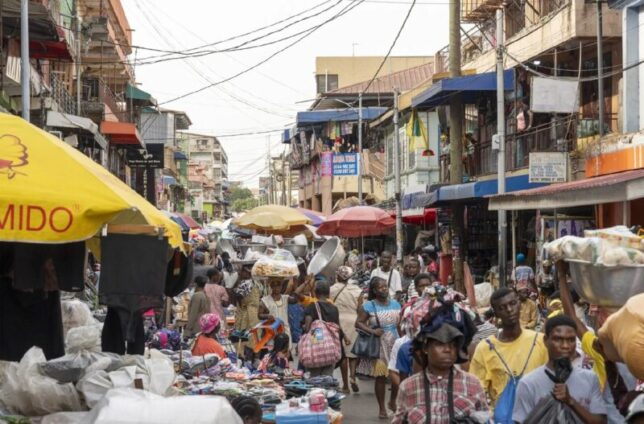
Audio By Carbonatix
Ghana received “overwhelming” participation and support from its international bondholders to restructure $13 billion of eurobonds, a key step marking the conclusion of the West African nation’s debt rework.
Over 90% of bondholders agreed to a debt exchange following a consent solicitation, paving the way for the government to issue new bonds to investors to replace existing ones, the government said in a statement Thursday.
Investors will swap their securities for new notes on or around Oct. 9, with the complete settlement process expected to be finalized shortly thereafter, according to the statement.
The results mark a resolution after Ghana unilaterally halted payments on most of its external debt in 2022 and kicked off a revamp process. The country also agreed to a $3 billion bailout program with the International Monetary Fund in May of 2023 to help set its debt obligations onto a sustainable path as interest payments consumed more than half of government revenues.
“This landmark achievement ushers in a new phase of economic recovery, returning Ghana to a sustainable debt path and putting us back on the investor map,” the Ministry of Finance said in a separate statement.
The country’s dollar-denominated sovereign bonds were among the best performers in emerging markets on Thursday. Securities maturing in 2032 rose 0.2 cent to 53.46 cents on the dollar at 1:30p.m. in London. Notes due 2042 gained 0.1 cent to 53.33 cents on the dollar.
Ghana reached an agreement in principle with investors to reorganize its eurobonds in June, presenting them with the choice between two alternatives: a so-called DISCO option or a PAR option.
Investors who accept the former option will take a 37% hair cut and receive two new bonds maturing in July 2029 and 2035, respectively, carrying interest rates of 5% from this year through July 2028 and stepped up to 6% thereafter. Bondholders who opt for the latter will get a 1.5% interest rate on new bonds maturing in January 2037 without any haircuts.
The West African nation’s deal has been hailed as one of the quickest under the Group of 20’s Common Framework, which works with the principle of comparability of treatment between sovereign lenders and bond investors. It took Zambia nearly four years to issue two series of restructured notes to investors.
Culled from Bloomberg
(Credit: Jorgelina Do Rosario / Bloomberg — With assistance from Selcuk Gokoluk)
Latest Stories
-
Firefighters subdue blaze at Accra’s Tudu, officials warn of busy fire season ahead
12 minutes -
New Year’s Luv FM Family Party in the park ends in grand style at Rattray park
17 minutes -
Mahama targets digital schools, universal healthcare, and food self-sufficiency in 2026
24 minutes -
Ghana’s global image boosted by our world-acclaimed reset agenda – Mahama
45 minutes -
Full text: Mahama’s New Year message to the nation
45 minutes -
The foundation is laid; now we accelerate and expand in 2026 – Mahama
1 hour -
There is no NPP, CPP nor NDC Ghana, only one Ghana – Mahama
1 hour -
Eduwatch praises education financing gains but warns delays, teacher gaps could derail reforms
1 hour -
Kusaal Wikimedians take local language online in 14-day digital campaign
2 hours -
Stop interfering in each other’s roles – Bole-Bamboi MP appeals to traditional rulers for peace
2 hours -
Playback: President Mahama addressed the nation in New Year message
3 hours -
Industrial and Commercial Workers’ Union call for strong work ethics, economic participation in 2026 new year message
5 hours -
Crossover Joy: Churches in Ghana welcome 2026 with fire and faith
5 hours -
Traffic chaos on Accra–Kumasi Highway leaves hundreds stranded as diversions gridlock
5 hours -
Luv FM Family Party in the Park: Hundreds of families flock to Luv FM family party as more join the queue in excitement
5 hours

